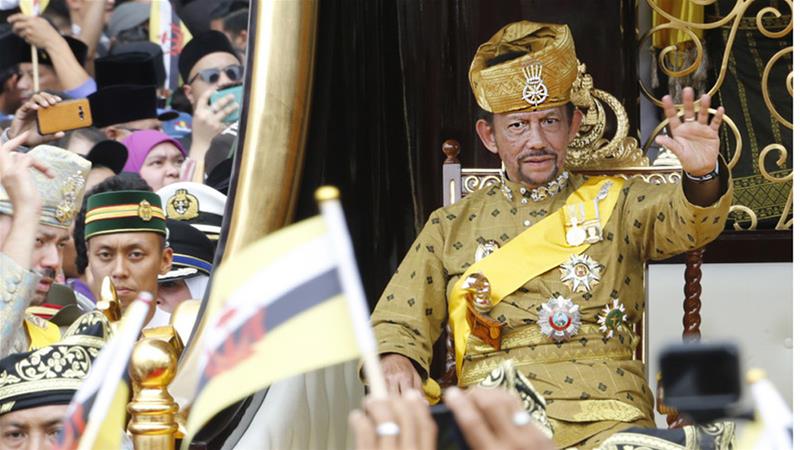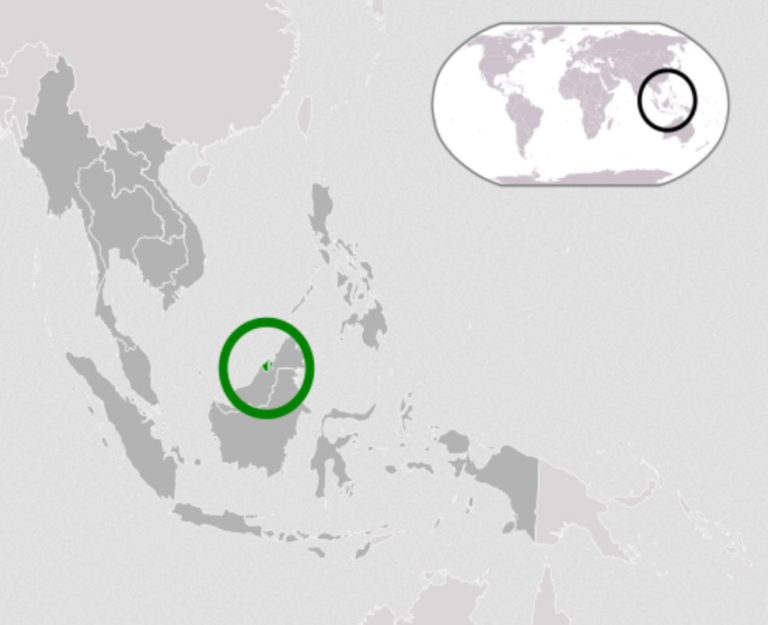Brunei law spurs anti-gay violence, boosts fears
Colin Stewart is a 45-year journalism veteran living in Southern…
Brunei’s new gay death law isn’t likely to lead to many actual executions, but it has already engendered anti-gay violence and fears of escalating intolerance.

The Guardian reports on an attempt to kill a flamboyant young man in Brunei and on the fears in the LGBT community there:
‘It’s dangerous to go out now’: young, gay and scared in Brunei
Draconian new laws have spread unease rather than outright panic in a population that is used to finding ways around legislation.
A day after it became legally possible to be stoned to death for having gay sex in Brunei, 21-year-old Zain* got a bitter taste of the new reality.
Walking down the street in skinny jeans and high-heeled boots, a flamboyant anomaly in the conservative sultanate, the university student became a target.
“I saw this van about 50 metres away,” said Zain, who is gay. “When the driver saw me, the van accelerated, just to run me over, but I dodged it. I was like, ‘Bitch, what the hell was that?’”
Last week Brunei – a tiny tropical nation on the island of Borneo, a former British protectorate that is home to 420,000 people – introduced harsh new sharia laws, including death by stoning for adultery and gay sex, and amputation of limbs for theft. …
But amid the cacophony of international criticism, in Brunei the laws came into effect with zero official fanfare, or even a passing mention. On Wednesday the lead story in the Borneo Bulletin, Brunei’s main English-language daily newspaper, was about missing fire hydrants – with not a word about the laws.
At a public event the same day, the sultan was similarly oblique, saying only that he advocated “stronger Islamic teaching”. In fact, in the quiet and predictable Bruneian capital, Bandar Seri Begawan, the reception of the new sharia penal code has run counter to international perceptions.
On the ground, young Bruneians say they are less scared of being prosecuted under the new laws than of how they might embolden religious conservatives, and justify acts of hate against them – like strangers trying to run them over in the street, or worse.
Given the absence of reports in the self-censoring local press, Zain heard the news on Twitter. His first thought, he told the Observer, was “oh my God I am going to die, I am going to be stoned to death”.
But after reading the fine print, he and others in Brunei’s underground LGBT scene are sceptical that anyone will actually be stoned. The high burden of proof, requiring a confession, or at least four credible witnesses to a criminalised act, means it won’t be easy to prosecute.
And while capital punishment has long been law in Brunei – although by hanging rather than stoning – no one has been executed since 1957.
“So that’s why I am not really scared about the law, but I am scared about the people,” said Zain. “The implementation gives a lot of conservative people who are very homophobic a lot of power. It is more dangerous for people like me to go out now.”
Other LGBT Bruneians agree the laws will be very difficult to enforce, but that hasn’t stopped them feeling paranoid. Are their neighbours, for example, watching them now?
Many, especially the more visible transgender people, are keeping a low profile, living even more discreetly than they already did.

Rafay, another gay Bruneian man, said: “To me, it makes my life even more complicated. It’s somewhat harder for me to be open when I’m in public.”
Although the draconian measures are in place, in the capital it feels as though little has changed. Days after the law came into effect, no cases had been prosecuted and sharia police were not combing the streets. LGBT Bruneians are in an uneasy state of wait and see. “I might leave Brunei,” said Rafay, “if the situation worsens.”
Some have already made changes to their lifestyles. Ali, a thirtysomething artist, said he would simply stop dating men. “I consider myself bi[sexual], so for me I guess it is just pretty easy – I just cut the other half,” he said. “For me it’s an extra risk I can just cut off. I know that doesn’t apply to most people. If they are gay they can’t just cut off guys, so I am fundamentally opposed to the laws.”
Living in a conservative majority-Muslim society with strict laws already in place – gay sex, for example, has long been illegal – young Bruneians are skilled adapters. The sale of alcohol and cigarettes is banned, but they know where to find contraband sources.
If they want to party they can drive a few hours to the Malaysian border town of Miri, and go clubbing for the night, or take a short flight to neighbouring Kuala Lumpur. …
*All names have been changed.
Related articles:
- Growing boycott isn’t the only protest against Brunei gay death law (
- Take action: Here’s what you can do about gay executions in Brunei (
- Mixed signals on how to oppose Brunei’s harsh anti-gay law
- Brunei again plans to execute gays (
- Will Brunei’s horrid law unite LGBT and women’s activists? (
- Muslim-ruled Brunei OKs stoning for gay sex (




